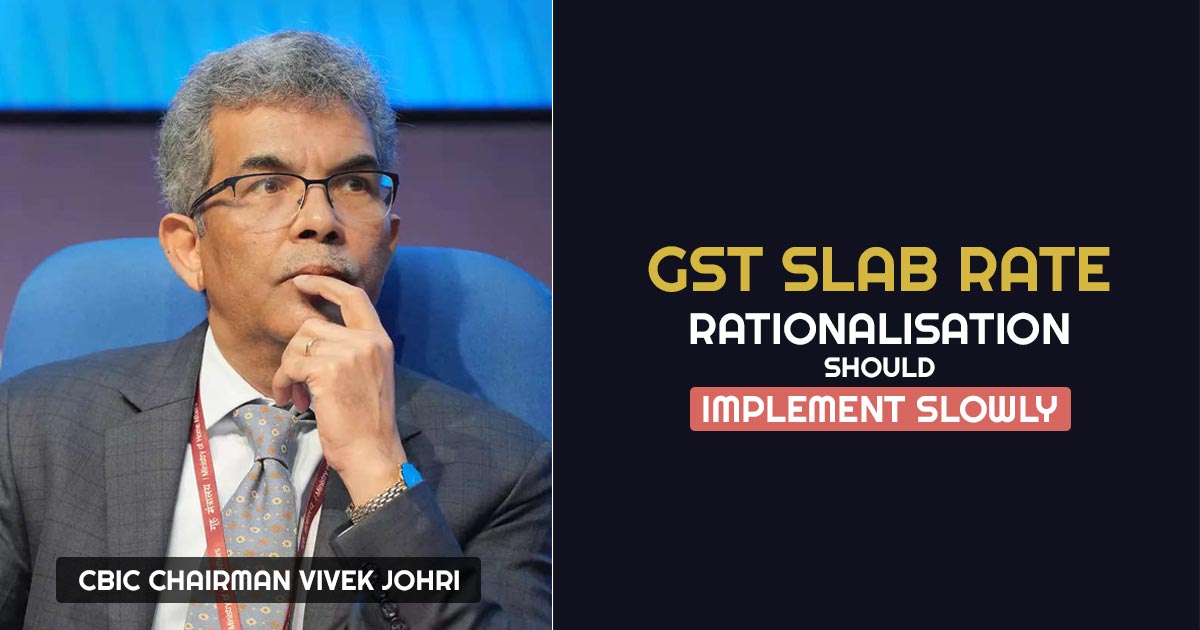
Any prospective modifications in the Goods and Services Tax (GST) rates will need to be carefully considered and may need to be made gradually, according to Vivek Johri. In an interview, the Central Board of Indirect Taxes and Customs (CBIC) Chairman highlighted the significance of revenue efficiency and suggested that rate reduction be considered judiciously to ensure the stability of consolidated revenues.
The GST Council will hold its 50th meeting at Vigyan Bhawan in New Delhi on July 11.
According to Johri, there will be more room for adopting rate reduction as revenue efficiency increases. He underlined the necessity of a measured approach, though, and said it would not be easy to make all the implementations at once. According to him, a gentle and hassle-free move would be required to make sure that any revenue consolidation is not negatively impacted.
Johri stated a general expression that the existing GST slab structure, in the end, will coincide with three rates: a median rate, a merit rate, and a demerit rate. He thinks that changes are frequently made at advantageous moments or during severe crises, and thankfully, the situation does not call for swift action right away.
Johri agreed that no system is flawless and questioned who the current pricing structure actually benefits. A four-rate structure might also be appropriate, Johri said, taking into account the flaws present in any system, even though there may be justifications for heading in the direction of three rates.
Read Also: Council to Withdraw Few GST Exemptions and Correct Slab Rates
Speaking to a media person, Johri said that if this kind of structural transformation is required, someone can raise the question, Who is harming the current rate structure? Do you really want to go to three rates, or is it just a matter of appearance? Four rates are acceptable. Although there is some inversion, no system is perfect. That might also be argued.









